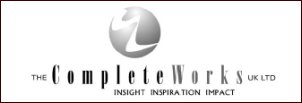Rick Bond examines the hurdles to achieving change and the boards role in the processes that lead to a successful outcome.

There comes a time in the life of most companies when significant changes are contemplated. There may be an opportunity to move to a new building, to change artistic policy, governance structure or even a merger with another cultural agency. Change may also be necessary to ensure survival or ensure protection from competitors.
Research on change programmes indicates that most resistance to change comes from those who dont have sufficient input into shaping change initiatives, allowing them time to focus on the comfort zones they are being asked to sacrifice. Too often people lack the means to express legitimate concerns about the design and interpretation of change projects. Change means destruction and renewal. It means abandoning old ways of working, familiar comfort zones, and creating new systems, behaviours, principles and practices. Change is hard, it must be well-led and the process of change must be inclusive.
Making the case
When change is proposed it is usually supported by a carefully prepared case based on benefits attainable. Sometimes the case for change stems from a perceived need by a single, usually influential, person such as a senior manager or independent consultant. Such cases tend to focus upon the perceived imperative or motivation for change. These may include financial savings, income potential, economies of scale, or increased capacity or influence. Where mergers of arts organisations are proposed, the synergy between the different company objects, operational systems and cultures is also addressed. Such elements are important for success, but they do not guarantee it unless further elements, known affectionately (because it works) among change experts as the DICE Framework, are considered. DICE stands for Duration, Integrity, Commitment and Effort. Without them being embraced by the whole company from board level down (or up), changes tend to fail upon the rock that is human resistance.
Rolling the DICE
Developed by the Boston Consulting Group, the DICE Frameworks predict the outcomes and guides the execution of major change programmes. It is a valuable tool for directors and management alike. Conducting a DICE assessment fosters successful change by sparking valuable board and senior management leadership debate about strategy. It improves effectiveness by allowing companies to expand their capacity to manage change.
Projects have the greatest chance of succeeding if the following elements are in place:
Duration: A long project reviewed frequently stands a far better chance of succeeding than a short project if reviewed infrequently. Frequent reviews identify the first symptoms of problems or resistance, allowing time for prompt appropriate actions. Major change programmes need systems that allow progress to be reviewed every two weeks. Boards should establish a review group prepared to review progress, note emerging issues, and prepare and sanction appropriate responses.
Integrity: This refers to the extent an organisation can rely upon a team to successfully manage projects within the change programme. While project champions are essential, a change programmes success hinges on a high-integrity, high quality project team. Boards must take responsibility for ensuring such teams are well led, with team members having clear roles, commitments and accountability. To identify team candidates with the right portfolio of skills, names should be solicited from within the organisation. While it may be appropriate to include those holding the necessary decision-making powers, such teams should seek people recognised within the organisation as having problem-solving skills, are results orientated and, who are (and this can a tough one) willing to accept responsibility for decisions while disdaining the limelight. The appointment of a director or manager known to resist the proposed change is inappropriate (though their views and justifications for resistance should certainly be clarified and addressed).
Commitment: If the staff dont see both the board and the senior management whole-heartedly supporting the change initiative, they wont change. Initiatives have to be constantly and visibly endorsed. The reasons for change need to be continually communicated and what the change will mean for staff once it has been achieved. The role played by management and other staff in change programmes is massively underestimated. By communicating too little, too late or inconsistently, these people can be alienated from the process, driving them to resist and even undermine proposed changes, no matter how necessary they may be. Above all, ensure that all messages are consistent and clear and, where possible, include one-to-one communication. Often people will perceive the change in different ways. Debate should be encouraged to identify and address this. Establishing a common framework for discussing concerns and suggestions may appear akin to opening Pandoras Box, but it actually creates a fast track to understanding and acceptance.
Effort: Before offloading duties and tasks, directors need to appreciate and calculate how much work staff will have to do beyond their existing responsibilities to change to new processes. If adopting a change burdens staff with too much additional effort, they will resist. Thats natural. Calculate how much work staff will have to do over and above their existing workload and responsibilities to implement the change. Ensure that no ones workload increases by more than 10%. If necessary, seek opportunities to remove non-essential work from staff with key roles in the change programme. Any change programme will involve lots of mini-programmes. Directors should be aware which are mission-critical, and ensure these are given priority both in their timing and resources.
The DICE programme allows organisations to tap into the insight, experience and potential backing of their staff. By enabling conversations at all levels within the organisation, the framework helps people work constructively towards new goals. So, say goodbye to apathy, hostility, incomprehension and forgetfulness and, say hello to empowerment and roll the DICE!

Rick Bond is the Director of The Complete Works (UK) Ltd, specialising in delivering management solutions and training for arts and cultural organisations.
t: 01598 710698;
e: rick@thecompleteworks.org.uk;
w: http://www.thecompleteworks.org.uk



